Memories of the COVID-19 pandemic can be locked away through photos, videos or other forms of media, especially in today’s digital age. Ball State and other collections are using their own repositories as the key.
To preserve what life was like during the COVID-19 pandemic for future generations, the team members of Ball State University Libraries’ Archives and Special Collections has partnered with the Everyday Life in Middletown Project and Muncie Public Library to organize “Document Your Story: COVID-19 Pandemic Project Archive.”
“The COVID-19 Pandemic Project, in many ways, is a logical extension of the commitment of the Libraries’ Archives to document, acquire and preserve the history of our community,” said Matthew Shaw, dean of the University Libraries.
The goal of the project is to get donations of items, specifically related to the pandemic, from the Muncie and Ball State communities for residents, students and historians to look back on these unprecedented times, said Sarah Allison, head of archives user engagement. The collection has accepted photos of Ball State’s campus, as well as journals and poems from residents of Muncie and Delaware County. Submissions are not limited to artwork, videos and other media.
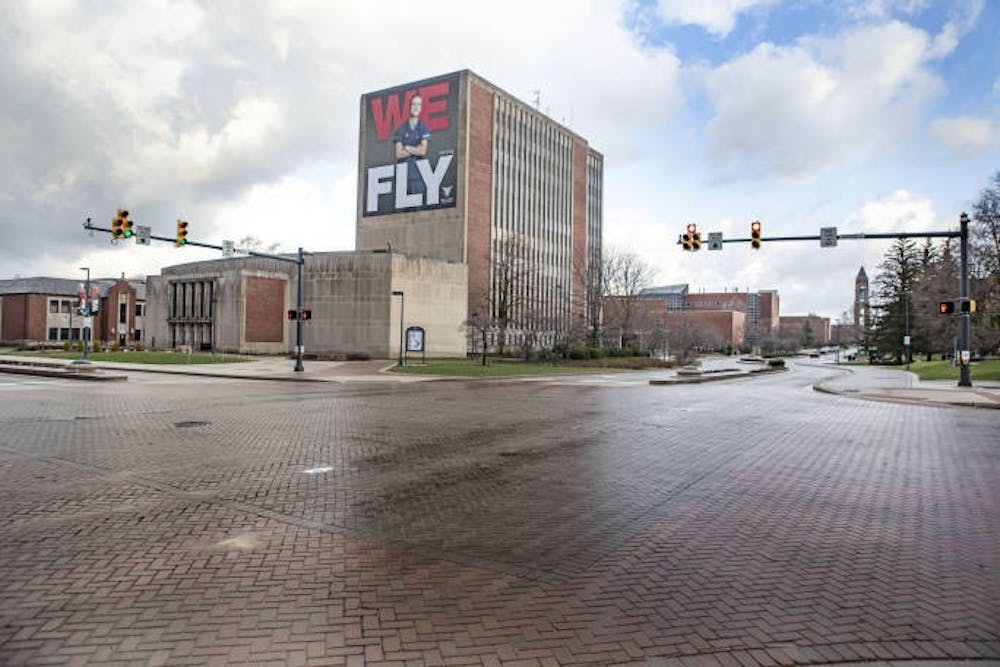
The scramble light stands empty after campus shut down in March 2020 due to the COVID-19 pandemic. University Libraries Digital Media Repository, Photo Courtesy
Step-by-step submission for Ball State’s repository
- Visit https://bsu.libwizard.com/f/c19ppa.
- Fill out email, name and affiliation with the university.
- Enter info about your location.
- Answer questions about your submission.
- Upload up to four of your submissions at once. File uploads are limited to 100 MB.
- Click ‘Submit.’
Submissions through Ball State will be added to the Stoeckel Archive of Local History Collection with no deadline. Sarah Allison, head of archives user engagement, also handles the donation of physical materials and can be reached at smallison@bsu.edu.
The Middletown Project offers a pandemic questionnaire that can be answered for researchers to get an idea of what everyday life was like during the pandemic. People can sign up at the Middletown Project’s website.
Muncie Public Library accepts physical and digital submissions, which will be added to the Biblioboard collection. There is no deadline, and people can donate items through their website or call to donate a physical item.
Source: COVID-19 Pandemic Project Archive
Because indoor activities are still sometimes limited, the entire digital collection can be viewed online through each archive’s respective repositories. Details for analog submission are listed on each site’s submission page.
The idea for the collaborative project materialized in March 2020 after Allison saw photos posted on social media of Ball State’s studentless campus after students and staff began online classes March 16, 2020. She then reached out to Sara McKinley, manager of local history and the genealogy department at Muncie Public Library; Patrick Collier, director of the Everyday Life in Middletown Project; and James Connolly, director of the Center for Middletown Studies, to gauge each of their interests in cataloging these once-in-a-lifetime experiences.
“We developed the ‘Document Your Story: COVID-19 Pandemic Project Archive,’” Allison said. “This was a way for our community, both campus and local, to submit their story to be a part of the narrative and have a voice during this time.”
Together, the group of leaders came up with the proposal for the project. It was quickly deemed a three-way archive giving each collection its own unique perspective, McKinley said.
“We’re all working in tandem with each other but on our own projects [while] promoting it all together,” McKinley said.
The submission portals opened April 1, 2020, and all three archives moved promptly amid an unprecedented time. Quickly, students’ writing assignments for classes became part of a digital time capsule in the early weeks of the pandemic.
“[We] were inspired by other libraries and archives, like the Indiana Historical Society, to figure out how to start collecting things,” McKinley said. “Instead of one website, we each wanted to contribute our unique perspectives on how we presented things.”
Along with submissions from students, diarists from the Everyday Life in Middletown Project began shifting their daily writing to documenting history.
“We’re living through a moment of crisis, and one part of that crisis is public discussion,” Collier said.
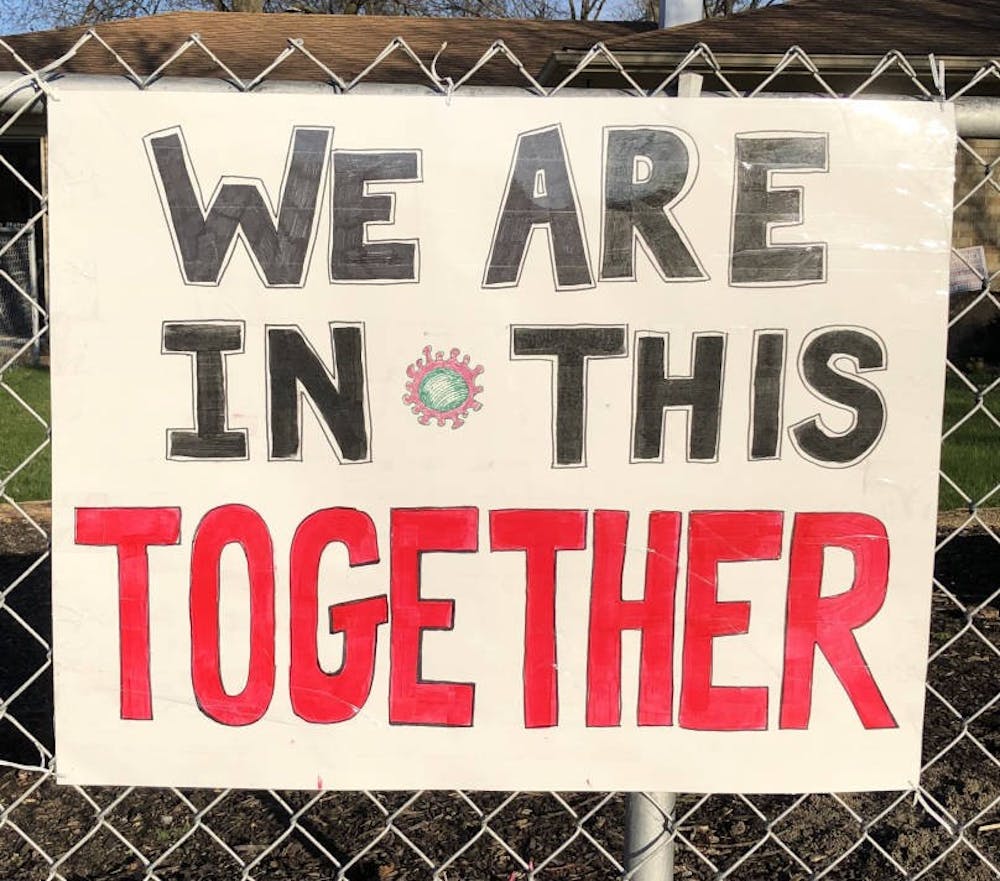
A sign hangs on a fence in the Halteman Village neighborhood. University Libraries Digital Media Repository, Photo Courtesy
The Everyday Life in Middletown Project was created for people to discuss everyday life in 2016 because it tends to be the mundane events of Muncie that are recorded the least, Collier said. When the pandemic initially affected the Ball State campus community, Connolly knew a project like Everyday Life in Middletown would play an intricate role in recording something as unpredictable as the COVID-19 pandemic.
“Since we had already been doing this documenting of everyday experiences, we thought that we would shift our focus to everyday life in the pandemic and connect our efforts,” Connolly said. “[Through the project], we would provide a different dimension of how the pandemic has affected everyday life.”
Everyday Life in Middletown’s diarists have written entries about their day-to-day life, answered a variety of questions about the pandemic and submitted their personal experiences of the time.
There are three different methods of engagement for those willing, each offered by one of the three organizations contributing to the project. As all three entities continue to collect bits and pieces of history, McKinley wants those interested in submitting work to know it is never too late to submit their memories.
“Everyone is still very much in the thick of the pandemic right now, and we’re very much responding to our everyday life struggles right now,” McKinley said. “We’ve encouraged people to document their thoughts and everyday experiences, like what they are seeing when they’re traveling, what they see in their home and workplace.”
Contact Jaden Hasse with comments at jdhasse@bsu.edu or on Twitter @HasseJaden. Contact Grace Bentkowski with comments at gmbentkowski@bsu.edu or on Twitter @gbentkowski.

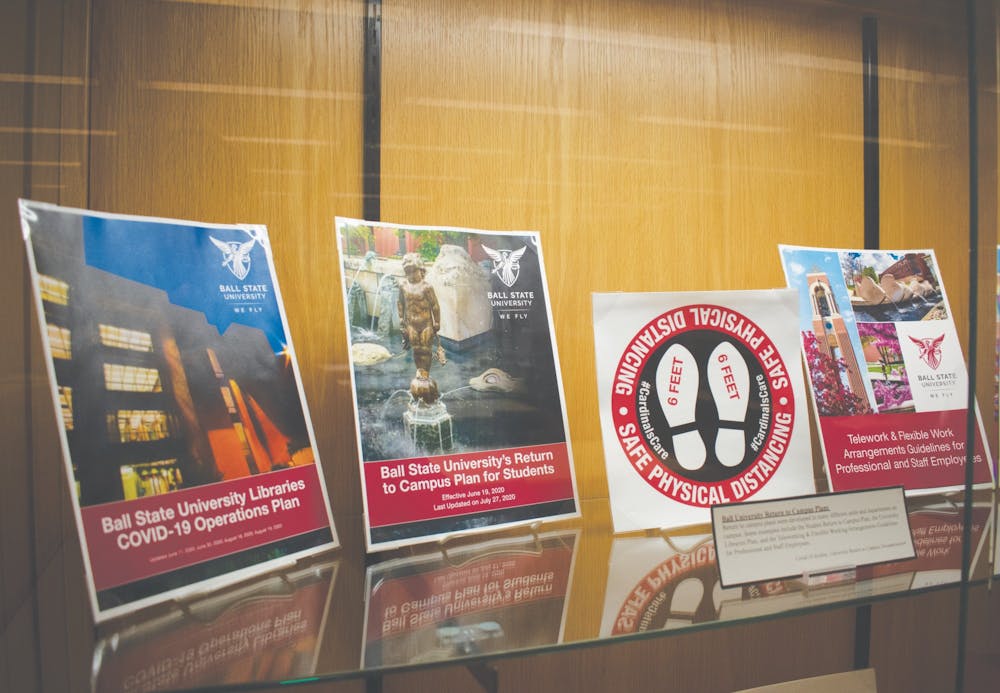
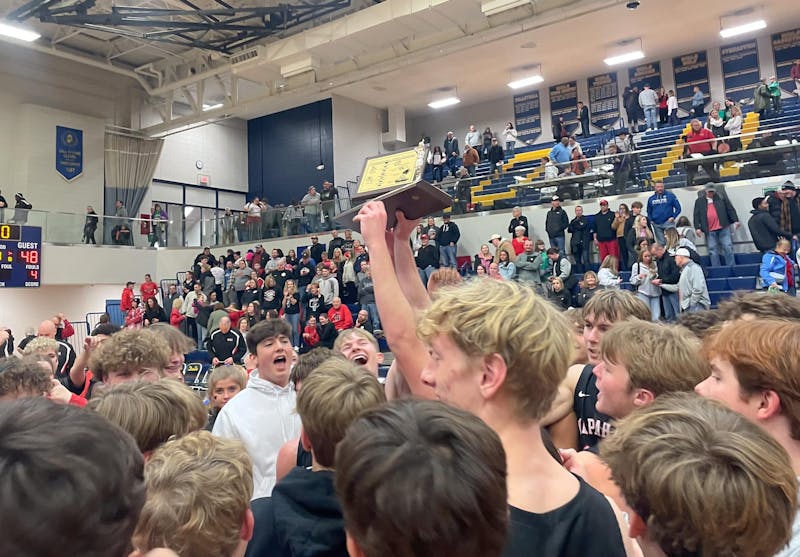

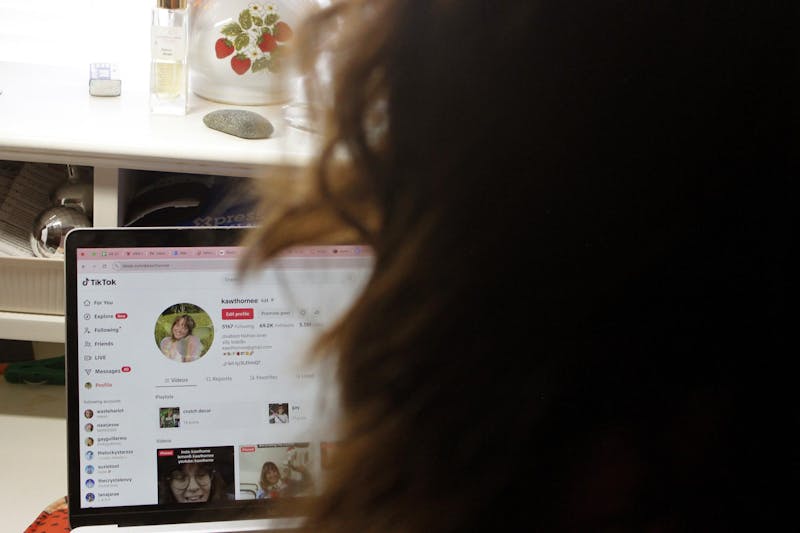
The Daily News welcomes thoughtful discussion on all of our stories, but please keep comments civil and on-topic. Read our full guidelines here.